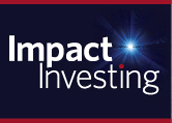On the private debt side, Leonard has close to $20 million invested in Calvert Foundation’s Community Investment Notes. Most of her clients participate. Capital raised through purchase of these notes is being lent to more than 200 non-profit organizations worldwide. Calvert Foundation conducts due diligence on each one. “We think of Calvert [Foundation] as the manager we hire for private debt,” she says.
The initial minimum investment is $1,000 for brokerage and direct purchases, $20 for purchases through online brokerage MicroPlace. Investors earn a fixed financial return of up to 2% depending on the term of the note.
Plug And Play
At last month’s Clinton Global Initiative America meeting, Leonard heard much brainstorming on how to initiate more private debt community investments. “They’re champing at the bit on how to get to scale,” she says.
Meanwhile, “The public side is really plug and play,” says Leonard, who notes that the financial community has spent the past 30 years building a robust toolbox on this side of the impact space.
UBS’s platform houses every socially responsible mutual fund, and investors can make selections based on risk profile, she says. UBS has relationships with most separately managed account managers specializing in SRI, including Trillium Asset Management, Walden Asset Management, Calvert Investments, Pax World Management, Parnassus Investments and Domini Social Investments. They offer a variety of equity and fixed income offerings.
For public debt, Leonard has also used the Community Capital Management’s CRA Qualified Investment Fund, a mutual fund that invests in high-quality fixed-income securities that support community development initiatives such as affordable housing, job creation and small business development.
The fund’s retail shares have a $2,500 minimum investment, and sports an expense ratio of 0.84 percent and a 30-day yield of 2.04 percent.
She also works with Breckinridge Capital Advisors, which focuses on high-grade fixed-income investments through separate accounts. It offers sustainable strategies that include allocations to local government bonds issued to fund impactful purposes such as clean water and public education; bonds from corporate borrowers with best-in-class ESG practices; and green bonds issued by multilateral development banks.
Traditional municipal bond managers are another good way to find impact, she says, because municipal issues fund such things as water projects, schools, open space and hospitals.

